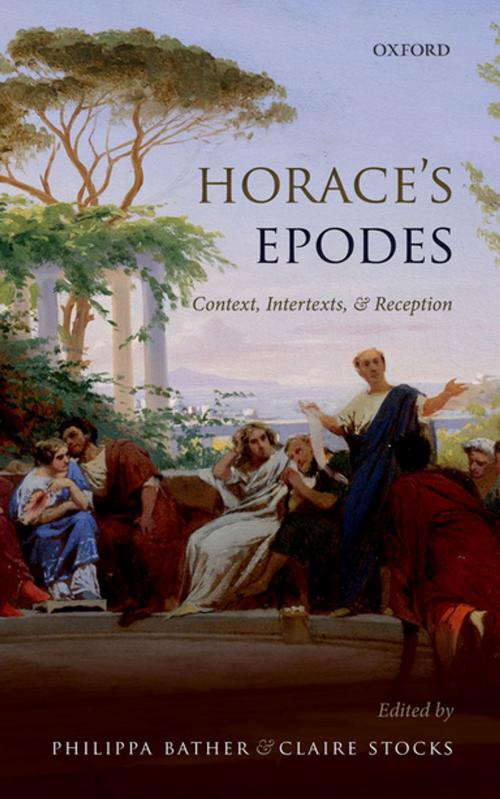Horace's Epodes
Contexts, Intertexts, and Reception
Fiction & Literature, Poetry, Literary Theory & Criticism, Nonfiction, History| Author: | ISBN: | 9780191079672 | |
| Publisher: | OUP Oxford | Publication: | March 10, 2016 |
| Imprint: | OUP Oxford | Language: | English |
| Author: | |
| ISBN: | 9780191079672 |
| Publisher: | OUP Oxford |
| Publication: | March 10, 2016 |
| Imprint: | OUP Oxford |
| Language: | English |
Horace's Epodes rank among the most under-valued texts of the early Roman principate. Abrasive in style and riddled with apparent inconsistencies, the Epodes have divided critics from the outset, infuriating and delighting them in equal measure. This collection of essays on the Epodes by new and established scholars seeks to overturn this work's ill-famed reputation and to reassert its place as a valid and valued member of Horace's literary corpus. Building upon a recent surge in scholarly interest in the Epodes, the volume goes one step further by looking beyond the collection itself to highlight the importance of intertext, context, and reception. Covering a wide range of topics including the iambic tradition and aspects of gender, it begins with a consideration of the influences of Greek iambic upon the Epodes and ends with a discussion on their reception during the seventeenth century and beyond. By focusing on the connections that can be drawn between the Epodes and other (ancient) works, as well as between the Epodes themselves, the volume will appeal to new and seasoned readers of the poems. In doing so it demonstrates that this smallest, and seemingly most insignificant, of Horace's works is worthy of a place alongside the much-lauded Satires and Odes.
Horace's Epodes rank among the most under-valued texts of the early Roman principate. Abrasive in style and riddled with apparent inconsistencies, the Epodes have divided critics from the outset, infuriating and delighting them in equal measure. This collection of essays on the Epodes by new and established scholars seeks to overturn this work's ill-famed reputation and to reassert its place as a valid and valued member of Horace's literary corpus. Building upon a recent surge in scholarly interest in the Epodes, the volume goes one step further by looking beyond the collection itself to highlight the importance of intertext, context, and reception. Covering a wide range of topics including the iambic tradition and aspects of gender, it begins with a consideration of the influences of Greek iambic upon the Epodes and ends with a discussion on their reception during the seventeenth century and beyond. By focusing on the connections that can be drawn between the Epodes and other (ancient) works, as well as between the Epodes themselves, the volume will appeal to new and seasoned readers of the poems. In doing so it demonstrates that this smallest, and seemingly most insignificant, of Horace's works is worthy of a place alongside the much-lauded Satires and Odes.















